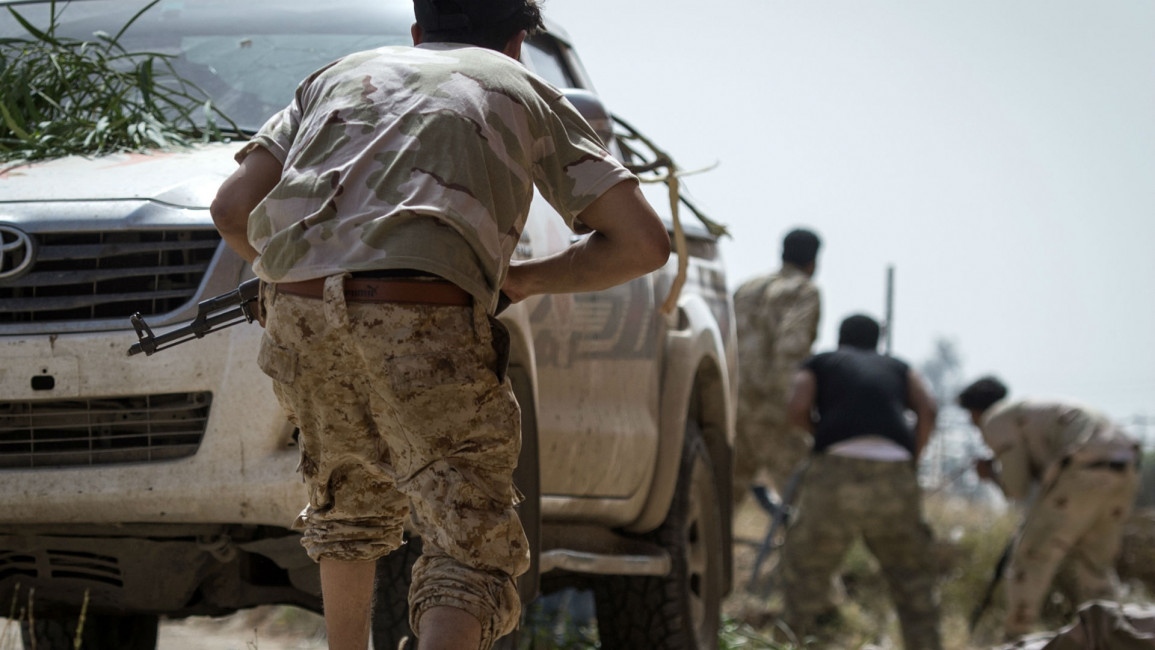UN warns of 'long and bloody war' in Libya
Addressing the Security Council on Tuesday, Ghassan Salame said "many countries" were supplying weapons to the UN-recognised government in Tripoli and forces led by Khalifa Haftar.
Haftar, who is backed by Egypt and the United Arab Emirates, launched an offensive on April 4 to seize the capital but his forces have been bogged down in the southern outskirts of Tripoli.
"I am no Cassandra, but the violence on the outskirts of Tripoli is just the start of a long and bloody war on the southern shores of the Mediterranean, imperiling the security of Libya's immediate neighbours and the wider Mediterranean region," Salame said.
Without immediate action to stop the flow of arms, "Libya will descend into civil war which could potentially lead to a Hobbesian all-against-all state of chaos or partition of the country," he said.
His appeal came after the Tripoli-based government of national accord posted photographs at the weekend of dozens of Turkish-made armored vehicles that it said on its Facebook page were fresh deliveries for its fighters.
Pro-Haftar websites also posted photos and video footage of Jordanian-built armoured cars they said were supplied to the Libyan National Army, Haftar's self-styled militia based in the east.
The GNA said the new weaponry had been supplied "in preparation for a vast operation to annihilate the rebels of the war criminal, the rebel Haftar."
Libya has been under an arms embargo since the 2011 uprising which led to the ousting and killing of dictator Muammar Gaddafi.
But the embargo has been regularly violated by different groups in Libya, according to the United Nations.
In a September report, the UN's group of experts on the country noted an increase in the number of armoured vehicles supplied to Haftar's LNA.
Haftar has been accused by detractors of receiving support including armoured vehicles from foreign states, particularly neighbouring Egypt and the United Arab Emirates.
In turn, he has accused Turkey and Qatar of supplying weapons to his rivals.
UN experts earlier this month said in a confidential report to the council that missiles fired at pro-Tripoli forces in April pointed to a likely drone attack that could involve a "third party," possibly the United Arab Emirates.
Armed groups, affiliated to the GNA, received drones for the first time and began to deploy them along the front lines, The Independent reported on Wednesday.
Libyan analyst Mohamed Eljarh cited reports of impromptu flights between Turkey and Misrata and insinuated that the drones were given by Turkish President Recep Tayyip Erdogan, a staunch supporter of the internationally recognised GNA government.
Khaled al-Meshri, president of Libya's High Council, reportedly said the GNA had obtained unmanned drones and modified them to counter Haftar's war planes and aerial surveillance capabilities.
"Yes, we have drones," al-Meshri said, according to The Independent. "Our aerial capacity has gotten better. The logic is overwhelming here, that the more time goes, the better we get. We didn’t expect this war."
Divided council
More than 75,000 people have been driven from their homes in the latest fighting and 510 have been killed, according to the World Health Organisation.
The envoy urged the council to set up a commission of inquiry to "determine who has taken up arms" and look into war crimes allegations.
With Haftar's forces mobilised near Tripoli, Libyan militias linked to the Islamic State and al-Qaeda have stepped up attacks, in particular in the south, Salame said.
The Security Council failed last month to agree on a draft resolution demanding a ceasefire in Libya and a return to political talks to end the conflict.
Russia refused to include any mention of Haftar's offensive on Tripoli while the United States said it needed more time to consider the situation, diplomats said.
"Attempts to place the responsibility at the foot of only one of the players would only lead to deepening confrontation," Russian Deputy Ambassador Vladimir Safronkov told the council.
France called for an immediate ceasefire and a return to talks, arguing that neither side could win an outright military victory in Tripoli.
Haftar is due to hold talks with President Emmanuel Macron in Paris this week.
The United States urged the warring sides to return to UN mediation.
Follow us on Twitter: @The_NewArab

![Trump's warm greeting to Netanyahu contrasted with Kamala Harris's critical reception [Getty]](/sites/default/files/styles/image_212x120/public/2024-07/GettyImages-2162908988.jpg?h=69f2b9d0&itok=uRh_9WXh)
![The brutal assault on Khan Younis has killed dozens and displaced thousands more [Getty]](/sites/default/files/styles/image_212x120/public/2024-07/GettyImages-2162526709.jpg?h=d3eda8cf&itok=HCP84AvQ)
![Members of the Algerian delegation threw roses into the Seine [Getty]](/sites/default/files/styles/image_330x185/public/2024-07/GettyImages-2162980872.jpg?h=199d8c1f&itok=h_3o_TOL)